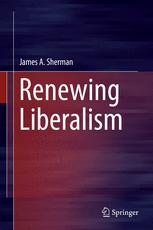

Most ebook files are in PDF format, so you can easily read them using various software such as Foxit Reader or directly on the Google Chrome browser.
Some ebook files are released by publishers in other formats such as .awz, .mobi, .epub, .fb2, etc. You may need to install specific software to read these formats on mobile/PC, such as Calibre.
Please read the tutorial at this link: https://ebookbell.com/faq
We offer FREE conversion to the popular formats you request; however, this may take some time. Therefore, right after payment, please email us, and we will try to provide the service as quickly as possible.
For some exceptional file formats or broken links (if any), please refrain from opening any disputes. Instead, email us first, and we will try to assist within a maximum of 6 hours.
EbookBell Team

5.0
30 reviewsThis book develops an original and comprehensive theory of political liberalism. It defends bold new accounts of the nature of autonomy and individual liberty, the content of distributive justice, and the justification for the authority of the State. The theory that emerges integrates contemporary progressive and pluralistic liberalism into a broadly Aristotelian intellectual tradition.
The early chapters of the book challenge the traditional conservative idea of individual liberty—the liberty to dispose of one’s property as one wishes—and replace it with a new one, according to which liberty is of equal value to all persons, regardless of economic position.
The middle chapters present an original theory of socio-economic justice, arguing that a society in which every citizen enjoys an equal share of liberty should be the distributive goal of the State. It is argued that this goal is incompatible with the existence of large disparities in wealth and economic power, and that (contra conservative and libertarian economic arguments) such disparities are harmful to the overall health of national and global economies.
The final chapters provide an original argument that the State has both a moral duty and a moral right to pursue this program of socio-economic justice (contra conservative and libertarian moral arguments), and that only the measures necessary to implement this program lie within the morally justifiable limits on the State’s authority.
Though primarily a political work, it spans most areas of practical philosophy—including ethical, social, and legal theory; and meta-ethics, moral psychology, and action theory. And though fundamentally a philosophical work, it incorporates research from a number of fields—including decision theory, economics, political science, and jurisprudence; primatology, neuroscience, and psychology; and history, anthropology, sociology, and ecology—and is sure to be of interest to a wide range of scholars and students.